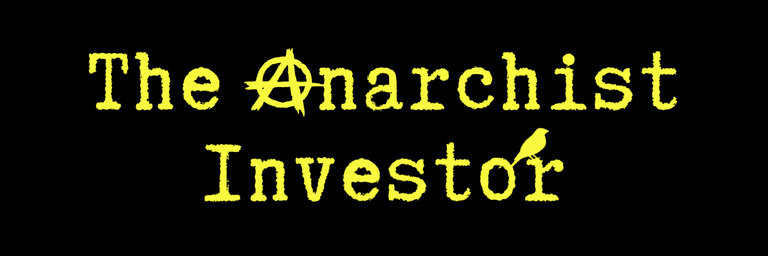
Anarchist Investor Weekly
Your weekly review of the Anarchist Investor Newsletter
Survive the Next Financial Crisis - Physical Health
Part 1 of the Financial Crisis Survival Playbook
THE ANARCHIST INVESTOR
MAY 20, 2024
Being healthy seems like it’s a very elusive goal in the present day. There are so many opportunities to indulge in products or activities that aren’t exactly ushering in a wave of healthfulness for us and our bodies. When you take into account the stress and reduction in resources that come along with a Financial Crisis, look out! Part 1 of the Financial Crisis Survival Playbook is going to focus on keeping our body functioning. If done well, a crisis can actually help us reprioritize and refocus on what is important to us. A fantastic place to start is with our physical well being.
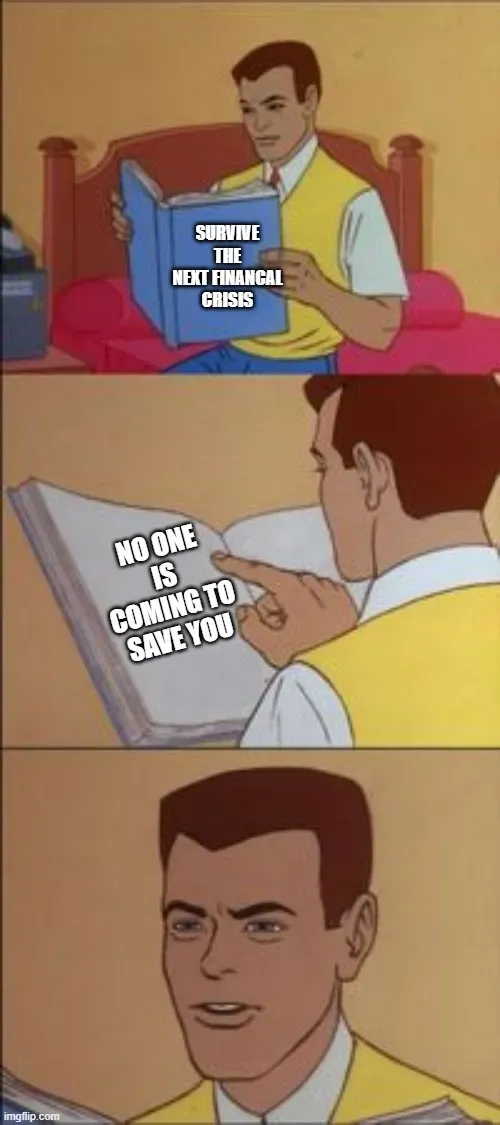
High Quality Calories
Many of us react to stress in similar ways. Those can include stress eating as well as drinking. Financially difficult times often coincide with a lot of coping mechanisms being activated at once. In fact, depending on how dire the financial situation is, you may find yourself in a survival mindset over a long period of time. While this can help in certain ways such as increased energy levels and awareness, it can also lead to very bad habits like eating whatever you can, whenever you can. Your body’s “fear” is that if you don’t consume now, you may not have that opportunity in the future. This can also extend to your financial consumption as well but that will come back up again in the Basic Expenses section of this guide.
Physical health begins with what you consume. It’s the fuel that helps everything else run. The old adage still holds…garbage in, garbage out. All of us need a high quality foundation of calories to build our diet off of. And I can’t stress this enough, we need to focus on eating Real Food. Processed food is not real and it is almost always detrimental to our physical health.
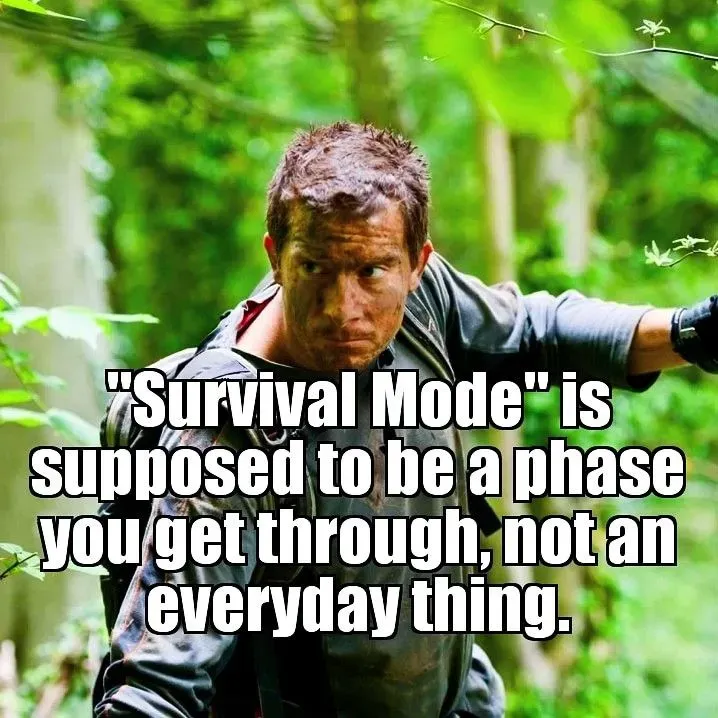
The Basics
Rice and Beans can save your life. No this is not a pitch for veganism. It’s a pitch for the two ingredients that can be readily found in most economic environments and form the basis for a sustainable diet. You can buy them in bulk (dry) and use them in a number of ways. They can take on flavors that you add to them and they are consumable as either a soup, stew, or on their own as a main or side dish. They also keep fairly well so leftovers won’t spoil as quickly. Honorable mentions here are lentils and chickpeas. They contain protein and can also be purchased canned or dry.
Canned soups and vegetables are super cost effective, have a long shelf life, and can be easily added to Rice and Beans to round out the flavor of a meal while adding nutrients. Cream of mushroom, celery or chicken soup is a bulk item that makes rice into a porridge or casserole without a lot of work. Canned vegetables can add vitamins and minerals and save money as opposed to fresh produce all of the time (I prefer the fresh but it can be pricey). Make certain to watch out for high amounts of sodium in canned items. If possible, get the low sodium or no salt items and season them yourself.
A side note here is that your time priorities will change as looking for income or work may take over a lot of your day. Cooking may be a good mental health escape but you may also choose to prioritize the search for income and resources over excessive amounts of time spent in the kitchen.
Meats and dairy will be a big adjustment. During difficult times, trading down is the best option to keep animal protein in your diet. Chicken thighs are fairly cheap cuts as well as stew meats. Steaks, burgers, chicken breasts, and pork chops are typically higher priced meats that will move from being staples to a luxury when budgeting gets tough. Eggs are a good alternative and high quality eggs can be found at local farms if you have one close.
Make friends with your local farmers. We have forgotten how crucial it is to have food produced close to home in this globalized world. A local farm can produce a lot of what you need and they might be able to do it for a similar price to a big chain grocery store depending on the product.
Grow something yourself. Non pressure treated lumber and some soil can create gardening boxes. Use spare pieces you may have around and plant some renewable foods that are relatively low maintenance. What you choose will depend on where you live. Here in the northeast, I have found that cucumbers, potatoes and strawberries grow very well. You won’t need to grow everything in the produce section of the store. Get good at one or two things and parlay that into bartering with folks in your neighborhood for foods they grow or goods and services you will be in need of. Jams, jellies, and pickles can be traded for all sorts of other items.
Finally, drink a lot of water. Most folks walk around every day dehydrated as it is. Water is the means by which our body functions. It moves things around, helps us digest, and keeps cellular repair and generation working. At least a gallon of clean water every day should be your goal. Increase that amount if you’re doing a lot of physical labor or working out.
Preservation
Pay attention to food waste. Have a way to inventory your pantry so the nearest expiration dates are right in front of your face so you are reminded to use those products first. You may also want to invest in a means to preserve your prepared foods for long term storage. Beyond basic Tupperware and plastic bags, a vacuum sealer for dry goods is a great purchase. This is especially true if you’re buying things in bulk and don’t have food storage buckets. A deep freezer is also a great investment. Colder freezers can keep food usable for years if needs be. You may be able to find one right now on Facebook Marketplace or Craigslist used or as a scratch and dent. I got a Frigidaire chest freezer from marketplace that was new in box with a small dent for 50% of the retail cost. It serves us well for our food as well as the raw food we purchase for the dogs and cat.
Physical Activity
Staying active physically is a positive contributor to your mental health (stay tuned for the next part in this series) as well as your body health. Strenuous workouts might not be necessary but regular walks, trips to the park, or sports with friends can keep your body in good working order. It can also be a means to socializing, building new relationships, and pulling your community together. In difficult times, community is a huge asset that needs to be leveraged or built to come out the other end in a better position than you entered.
A healthy body will keep your medical bills low and also help to reduce cravings for foods that seem much more appetizing when you have higher levels of cortisol or other stress hormones in your blood.
Free is fine here. There is no need to prioritize a gym membership unless of course that is a place you have a supporting community or you’re looking to actively build one there. Workouts don’t require structured classes to be effective. There are tons of free resources like DVD’s or on-demand videos at your local library as well as on a platforms like YouTube. When times are good, we tend to be very wasteful and overlook the free resources at our disposal. A period of financial hardship will inspire us to reevaluate those expenses (more to come in the Basic Expenses section).
Treats
There is nothing wrong with a little reward here and there. In fact, my most successful periods of physical health included a treat that I used as a reward near the end of each day that I was able to make good on my plan. A piece of chocolate, single cookie, individual candy, etc can be very effective at positively reinforcing behavior and acknowledging your own successes each day. This can have both a positive physical and mental impact on you.
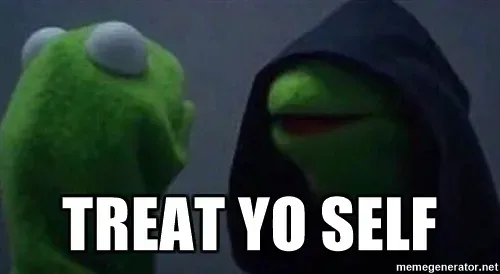
Buying in Bulk
In extreme situations, the game plan may call for a handful of ingredients that are low cost but also highly nutritious. These are perfect candidates for buying in bulk and storing. For the past couple years my family has stored dry goods we purchase in bulk in food storage buckets with air tight lids and food safe silica drying packs. These dry goods include black beans, pinto beans, chickpeas, lentils, rice, white flour, and oats. You can order them from Amazon but we defer to other producers so we can be certain of the food quality. The organization we have been using recently is Azure Standard. We don’t order everything from them. We still price shop. Don’t get married to a product or service. Constantly ask yourself if you might be able to get something for cheaper without having to give up very much quality.
Alcohol
This is a difficult one. Stressful times push folks to things like alcohol to cope. However, alcohol may be one of the most destructive substances that is readily available for public consumption (outside of cigarettes). It is a luxury but for many folks it is considered a staple in their diet and self care routine. There probably isn’t a better time though than a financial crisis to part ways with it. The habit can be expensive both in terms of the up front cost as well as the downstream physical and mental health affects.
You may want to keep alcohol in the mix as a treat. Keep in mind that it shouldn’t be a habitual (daily) treat and you should constantly be aware of the physical and mental impacts it is having on you.
Medical Care & Insurance
This is a difficult one. This is one of the areas where recessions and depressions don’t seem to decrease pricing as much as other industries. Part of the reason is that folks in dire physical health situations will pay anything to live. The pharmaceutical industry is pretty much built on this behavior. If you have an ability to get group health insurance, take it. Emergencies and accidents can bankrupt you during good times. During difficult times, that damage is magnified.
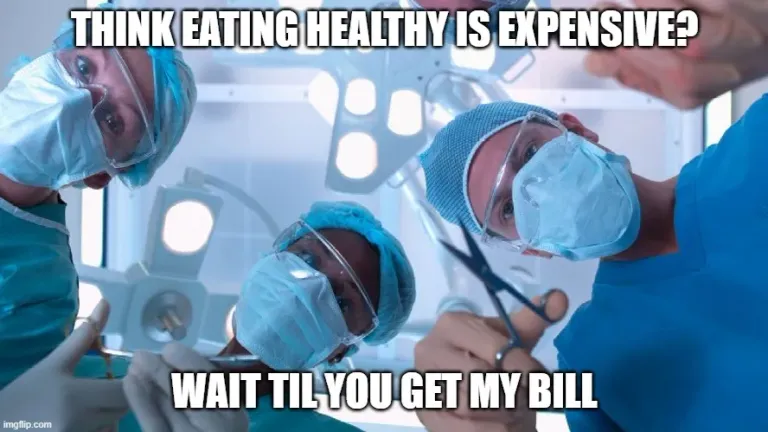
Non-group health insurance options include Direct Primary Care through a general or family medical practice that charges you a monthly fee that gives you access to almost unlimited care within the capabilities of that practice. You can find medical RX discount cards that reduce the pricing on standard medications. There is also the option of getting a medical bill repricer in the event of a big cost or expensive injury/illness. The repricer uses Medicare reimbursement rates to negotiate cash prices for procedures. This is most effect ahead of time if you know a procedure is needed or will be.
Holistic or home health treatments are an option here too. Keep in mind that they might not lead to a solution to a medical issue and should be undertaken only if you are familiar with the practice or have a trusted person to help you. If the treatment is not effective, do not hesitate to get a professional involved because delaying might lead to an even worse condition or injury which brings with it much higher expenses.
The most effective practice is to keep you and your family in good health and stay out of the medical system unless absolutely necessary.
That’s about it for the Physical Health portion of the guide. Let me know what I missed or if you have any other techniques you would like to round out this guide!
Survive the Next Financial Crisis - Mental Health
Part 2 of the Financial Crisis Survival Playbook
THE ANARCHIST INVESTOR
MAY 21, 2024
I want to begin this by stating two very obvious facts. 1: I am not a mental health professional. 2: Most folks have issues with mental health even when times are good financially. Those being out of the way, this is the part of the survival guide where we make sure to get our minds and spirits right so we can build a foundation for success when a lot of others will fail. A lot of these practices will apply right now. There’s no better time to get healthy than right now. So let’s go!
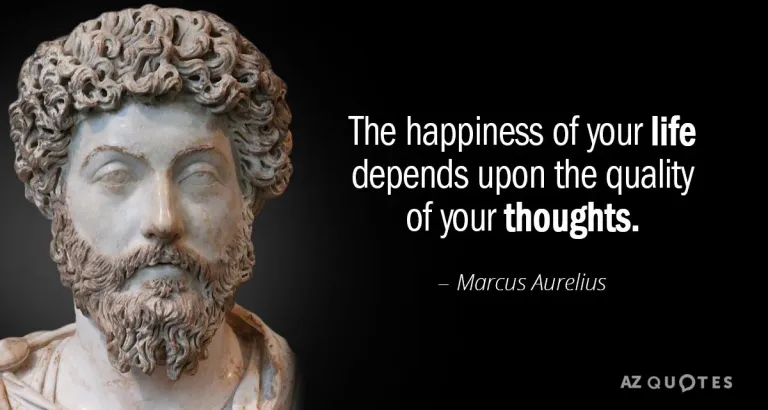
COVID
COVID proved to be a great litmus test. One that I failed. My use of alcohol skyrocketed, I became completely sedentary, and my perspective on life became very dark. Several of these habits I battle with to this day. I didn’t have a system in place when times were good that could’ve provided a foundation for good mental health during a crisis. Some folks actually thrived during COVID. They had a physical and mental routine (or adopted one) that they could use to build off of regardless of the circumstances. You can think of it like training for a marathon you weren’t expecting to run. Many folks were pushed to the starting line without any idea of how they were going to accomplish the feet ahead of them. They were lost. How would they even begin, much less get to the finish line?
Others were pushed to the starting line and simply had to figure out how to tweak their existing life to excel in the race ahead.
An Anchor
No, you don’t need a giant boat anchor though many of you may think that would be something cool to have in the house as part of the decor. I’m talking about a mental anchor that you can continually come back to. It’s intended to be a fortress for you. No matter how bad the battle gets, you can always come back to this anchor for refuge and rejuvenation. It can take many different forms. It can be any of the following but this by no means is an exhaustive list:
- A quote
- A mantra/meditation
- A memory or visualization
- A book/movie/song
- A space/room
- An artifact/memento/trinket
Your anchor needs to be there for you to be called upon at a moments notice. You can carry it with you or have a special place for it. It’s significance is that the entire world could feel like it’s falling down around you and it will still be there for you to help ground you.
A word of caution. Like the story of Narcissus or the warning Dumbledore gives to Harry while looking into the mirror of Erised, don’t dwell on or in your anchor. It is not a refuge in the sense that you can hide there or with it indefinitely. It is your waypoint. It is the wall you can touch so that you can catch your breath during a game of tag. As soon as it has served it’s purpose, it is time to get back in the fight.
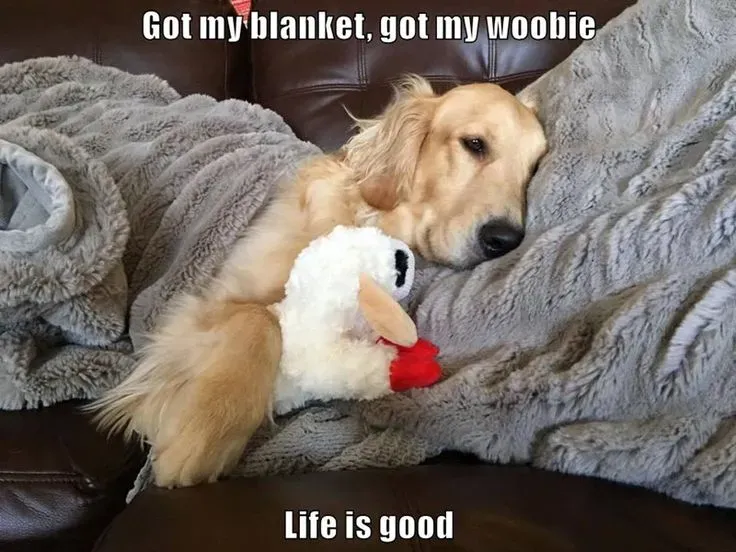
Routine
Everyone has one. Whether you choose to have one or not, there is one. So it’s better to have one that is based in your intention instead of coping mechanisms and bad habits. Similar to your anchor, your routine forms a foundation on which to build your day. It should include both activities just after waking up as well as prior to going to sleep. There is no perfect answer here. You need to find out what works best for you. My routine has been disrupted recently. I am working to get it back. It looks a little bit like this:
Morning (1.5 hours):
- Wake up (usually around 6:30-7)
- Let the dogs out and use the restroom
- Drink salt water (not sodium, an electrolyte mixture like LMNT)
- 5 minutes of fresh air and sun light
- Let the dogs in
- Workout for at least 30 minutes (row, run, lift)
- Cold shower
- Transcendental Meditation for 20 minutes
- Gratitude Journal for 5 minutes
- Make coffee and straighten/clean up the kitchen
- Go kick ass
Evening (1.5 hour):
- Hot Shower
- Read & Drink tea
- Meditate - focus on acknowledging my emotions from the day
- Journal - identify what I did well and what I still need to work on; plan for the next day
- Sleep
*A lot of these are also huge contributors to physical health as there is a mind-body connection. If you haven’t already, make sure to read Part 1 on maintaining physical health.
Note that there is minimal expense wrapped up in these routines. They can be replicated or mimicked regardless of your financial situation. The goal here is to create a strong mind and spirit that can tackle any obstacle through preparation, planning, and analysis both before and after. It also includes an element of Marcus Aurelius’ meditations in that it acknowledges what you went through and helps steel you for what lies ahead. If you haven’t read his meditations, I would highly recommend them. You can get them for free here or a free download on most e-reader apps.
Spiritual Practice
I’m not going to go too in depth into this one but there is something that all of us need. It is a sense of our place in this universe. That sense can come from a multitude of sources. Many folks turn to religion. There are also spiritual practices such as wicca, gnosticism, buddhism, etc. Something becoming more popular is a return to the practices and ceremonies of native peoples. I am trying to find a way to work some wilderness rights of passage and specifically a couple vision quests into my life. It’s not easy because they require time and money. However, it’s my faith that I will walk away with a lot of power from them. I feel called to them. Perhaps there has always been something you have been called to and haven’t found a way to engage with it. Now would be the time to see if you can.
Your Tribe/Village
Humans are social animals. We need some form of tribe/village. It’s possible to build a tribe during difficult times but often that tribe is built out of necessity with limited options to choose from. If your life isn’t too turbulent right now, you have the luxury of building a tribe out of intention rather than desperation. There are probably a number of folks in your life now that have arrived there in various ways. The most difficult process to undertake is evaluating what place those folks hold for you in your life. What impact, positive or negative, do they routinely have on you?
Part of a healthy life that I have a lot of difficulty with is setting boundaries. It starts with figuring out which boundaries you want, communicating them, and then defending them with vigor. There might be members of your tribe right now that refuse to acknowledge your boundaries or routinely trample them. Part of building a village is identifying when this is the case and taking action to remedy the situation. It can be as simple as restating your boundaries or communicating them in a different way. However, someone who refuses to or can’t understand how to respect your boundaries isn’t going to be a positive force in your life. Especially when times get tough.
Ultimately, your tribe is the first stop when you need help. They are the first responders. You need to trust them and have faith that they can answer the call. And here’s the biggest part, you need to be that for them too. The road goes both ways. Whether it’s a spouse, child, parent, aunt, uncle, friend, minister, shaman, etc…you both need to understand your role in each other’s life. The final part of building your village is communication. Let the people you consider to be in your village know what position they hold for you and you want to hold for them. Don’t assume that this is all understood. Tell them that you consider them part of your village and you would be honored if you were part of theirs.

Goals Outside of Finances
The final one is one of the most important in the process of finding your place within the universe. Have some goals outside of finances. Do things that give you a sense of accomplishment that have little or nothing to do with money. Some examples would be raising awesome kids, becoming a foundational member of a not-for-profit, practicing random acts of kindness every day, etc. These actions/achievements help you feel like no matter what, you’ve done something. No matter how tight things gets financially, you’re still able to contribute, create, or help.
What are your favorite practices to keep you balanced and mentally healthy?
ON TO PART 3 - BASIC EXPENSES
Survive the Next Financial Crisis - Basic Expenses
Part 3 of the Financial Crisis Survival Playbook
THE ANARCHIST INVESTOR
MAY 22, 2024
There is always a lot of denial headed into and in the beginning stages of a Financial Crisis. The average person doesn’t want to voluntarily change their standard of living. What you have grown accustomed to is what you expect your life to look like. Any deviation from that is unsettling. Unfortunately, we need adopt an old Navy Seal adage and “Embrace the Suck”.
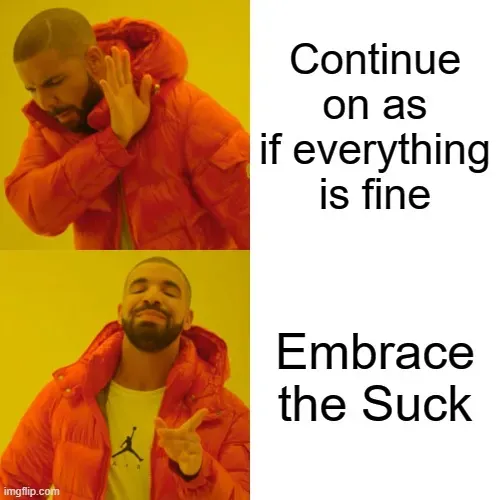
The Circle
The first step of this process is simple and difficult. On a sheet of paper draw a circle. Look at all of your monthly expenses. For each expense that is vital to your survival you write it inside the circle. Every expense that isn’t, you write outside of the circle. Then you get rid of all of the things outside of the circle. An example of things inside the circle will be your water bill, food bill (which you will want to try and reduce as much as possible), mortgage, home/car/health insurance, etc. Examples outside of the circle would be Netflix, gym memberships, eating out, new clothes, etc.
Keep in mind that some items will be within the circle from our previous parts such as an electrolyte drink for your morning routine or journals to write in. Yes, you can get this granular. You’re going to need to embrace your inner minimalist. What you’re trying to accomplish is to reduce your monthly/annual expenses as low as possible without compromising on the first two parts. Reminder that Part 1 and Part 2 of this series are there if you haven’t read them yet.
Beware of coping or rationalizing that might lead you to believe that you MUST have something in your life. It’s entirely possible that what you need is the experience or what you get out of the product and not the product itself. In turn, there may be a lower cost or free version that is equally effective.
Paying for Basic Expenses
If you are lucky to retain your job and it more than covers the items in the circle, fantastic. Still do the first part. You’re going to want the additional cash for Parts 4 and 5. If not, it’s time to hustle like you have never hustled before. The most immediate need is to find gainful work. That can be in the same industry, a new one, or anywhere locally that you have connections. Tap your social circle and keep tapping it. Even if it’s for odd jobs. Any money coming in the front door is a huge win. Government assistance programs may be available but they aren’t likely to afford you coverage for all of your expenses plus a bit to use in Parts 4 and 5.
If you have been planning ahead, you have a safety fund. Make sure you never have to tap that fund. It’s not there to spend. It’s there for emergencies. Do whatever you can to not have to use it. If you need to be your own payday lender from your safety fund, that’s fine. Just make sure that the very first thing you do is replenish the fund when payday hits.
You might also have an immediate stop gap in the form of unused assets in your home that are worth something and can be sold to help offset expenses in the near term or as your savings for Parts 4 and 5 if you’re able to secure enough pay to cover your circle. This process can also be done right now to raise cash as a safety fund!!!
The goal here is obviously to at least cover what’s in the circle. Once you have achieved that, your next question is, “Can I find just a little bit more.”
The Little Bit More
Even if it’s a dollar, you will want to try to save something during the crisis. This is for a number of reasons. The first is financial safety. The second is so you can take advantage of any financial recovery that follows the crisis.
If you are able to work 40 hours a week to cover your circle, the next step is a side hustle that allows you to save/invest. This can take the form of a full fledged business, flipping items at garage sales on ebay, crafting, labor jobs, picking up extra hours at your weekly job, etc. There is no goal here beyond simply getting a little more money each week to put aside.
Billionaires are made during the difficult times. They realize the profits from their hard work during the good times but the seeds are sown when things look the bleakest.
That’s it, fairly simple right? I know, just because it’s simple doesn’t make it easy. The universe, God, divine energy, or whatever you choose to call it doesn’t give you anything you can’t handle. It’s just up to you to choose to handle it.
Let me know what I missed or if you have any other techniques you would like to round out this guide!
Don’t Miss Your Chance At a Paid Subscription!!!
I’m giving away a yearly paid subscription valued at $99 to 4 free subscribers on June 3, 2024
💌 Get The Anarchist Investor automatically delivered to your inbox and get notified whenever a new post drops for free!
Subscribe: https://anarchistinvestor.substack.com
OR BETTER YET…Become a paid subscriber today and:
📚 Access to the full Anarchist Investor Archive Including Paid Only Posts
💰 My weekly portfolio update newsletter detailing allocations and performance
🎁 Incredible paid subscriber-only giveaways and promotions
Survive the Next Financial Crisis - Basic Investing
Part 4 of the Financial Crisis Survival Playbook
THE ANARCHIST INVESTOR
MAY 23, 2024
To recap, we began with securing (if not improving) our physical and mental health to assure we are not just able to survive but thrive in any financial environment. The next step was to make certain that basic household expenses are identified and maintained while eliminating all other optional spending so we can raise capital to save and invest. The next step is to secure a portion of that capital.
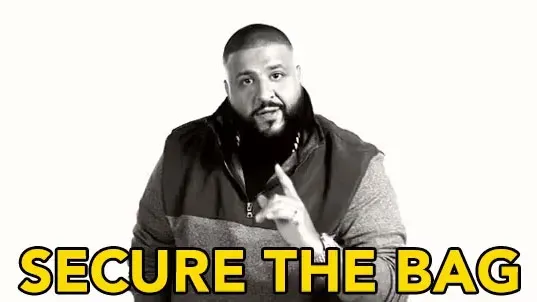
Insurance First
I can’t stress this enough. Most people skip the step of building a ringfence around their basic needs in life before reaching for homerun type investments and luxury spending. This translates into a lifestyle of boom and bust where they are chasing huge investment gains and eating steak followed by a period of government support payments and eating Ramen. It doesn’t need to be this way.
I laid out my general investment thesis and investment list in a prior post here. Most of the post is for paid subscribers but the beginning is the most important. After identifying the basic things you need in life, you need to secure them so you never have to take a step backwards. Every investment you make could go to zero and you would still have enough to live and be healthy.
Safety Fund
This is nothing new. I’m certain you’ve heard this a million times. You’re going to hear it a million more. Why? Most folks still won’t listen. That or they refuse to make the hard decisions to get this step checked off. They don’t have a safety fund in case of emergencies. This means every financial emergency has the potential to literally ruin them and then require years to recover (if at all).
6 to 12 months of the expenses we identified in Part 3. If Part 3 requires about $3,000 per month, that means you need a safety fund of at least $18,000 to $36,000. Doing step 3 during good times will get you there pretty darn quick if you are able to maintain a full-time job and also a profitable side hustle. A note on side hustles. If they don’t turn a profit, they’re just a hobby.
How to Invest Your Safety Fund
Your safety fund assets need to be there when you need them. You never want to have to dip into them. But if you do need them, they need to be liquid and have relatively no risk of declining in value. You do however need to make sure the fund doesn’t shrink over time due to inflation. My personal prescription is 70% in cash and cash equivalents and 30% in precious metals. The former are liquid with some assurances from organizations like the FDIC. The latter is for inflation protection and some appreciation over time.
Cash and Equivalents
The mix isn’t a huge deal here because interest rates on cash accounts will fluctuate over time. You will need to keep an eye on those interest rates because it could gain you returns over time by moving the money around. You should have cash at your home in small bills like $5’s and $1’s along with a few larger bills. This is in the event of a widescale power outage, natural catastrophe, etc. This cash will allow you to transact even if cash registers aren’t working (they can keep the change). Some of your cash should also be in another form of fiat (just a couple hundred bucks). I usually recommend Suisse Francs. Your bank can facilitate a currency swap.
The rest of your cash and equivalents should be in savings accounts, Certificates of Deposit (CD’s) with varied maturities, money market, and/or US Treasury accounts. I don’t list savings bonds here because they aren’t as liquid. Here is where the interest rate matters. Currently, rates are elevated on CD’s and US Treasury accounts. You can lock in some yields above the rate of inflation. You need to make certain the accounts allow at least one withdrawal without significant penalties in case you need to access the funds.
Precious Metals
Stick to the basics. Gold and Silver. It’s nice to have a mix of both. I have a fairly comprehensive buyer’s guide here. For the purposes of the Precious Metals you use for your safety fund you should have possession of them. A very well fire-rated safe is the ideal scenario. You may also want to bury a safe/container in the yard in an easily remembered spot. This is no joke. It could help in the event of a robbery or natural disaster.
Double check your homeowner’s or renter’s insurance policy with your agent/broker as far as how it covers or does not cover cash, jewelry and precious metals. It might make sense to pay a couple bucks extra per month if you need to for additional coverage if those assets aren’t covered by your standard policy.
Crypto
Crypto doesn’t have a huge place here for me because it’s too volatile. If you like, you can hold a little bit of a stablecoin like USDC on a cold storage wallet in your safe. However, I would not recommend that be a huge proportion of your safety fund. That being said, a cold storage wallet may be necessary for the final step in the survival guide so it’s not a bad idea to get one and familiarize yourself with it.
That’s it! Basic Investing is done. Make sure to come on back for the final installment where I’ll lay out a plan for Investing for Wealth Creation during and following the next financial crisis!
Survive the Next Financial Crisis - Grow Your Wealth
Part 5 of the Financial Crisis Survival Playbook
THE ANARCHIST INVESTOR
MAY 24, 2024
Most folks won’t make it to Part 4. They will stop somewhere around Part 3 because they will cling to a lot of luxuries that are wants and not needs. Unfortunately, this means they will not be able to participate in the “economic recovery” that follows the financial crisis. A very grim conclusion is that this happens with every financial crisis. The wealthy have exit velocity (to borrow an analytics-laden baseball reference). Investments that survive the crisis and throw off cash flow coupled with liquid capital to invest makes it possible for the wealthy to further distance themselves from the poor with every passing crisis. Here’s how to break that cycle for yourself and your family.
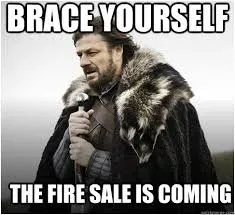
Prioritize Cash Flow
This is the most difficult part, deciding how to invest your liquid capital when everything is on sale. There are all kinds of opportunities in a down market to snap up assets and flip them or hold onto them for a lifetime. I can tell you that your particular goals and desires may be different than mine and thus what you prioritize may be different. For me, it doesn’t get better than opportunities to build cash flow. This means I focus on two specific areas: Real Estate and My Own Business/es.
Cash flow is going to serve you and your heirs well for generations. Everyone looks at someone like Elon Musk and thinks that their wealth is derived from a single bet on a company whose stock soars. However, the bulk of ultra wealthy that stay stay ultra wealthy prioritize monthly cash coming in the door that they can use to reinvest and increase the cash flows or redeploy that cash into other assets (especially when they’re cheap).
Real Estate
This is going to be an evolving focus on this substack. My base of real estate isn’t much beyond my personal residence. Part of investing in cash flows in a crisis also includes investing in knowledge and training to help you develop those cash flows. It is my intent to build a real estate portfolio through this crisis. I will need to learn some stuff. The reason I think this is an ideal time to do so is because the real estate market is in shambles. There are fire sales in certain regions and booming prices in others. This means there is imbalance and where there is imbalance, there is opportunity.
Until I can develop enough knowledge and base capital to purchase a property outright, I will be averaging into positions on lofty.ai. I will be able to add a little bit at a time to properties on the platform that generate cash flow. Once I have a base of investible capital stored on that platform, I will be able to redirect it into my first investment property.
I am taking recommendations on real estate investment courses. If you know of a good one, please leave it in the comments.
Entrepreneurship
The other common origin of wealth is in starting/running a business. It can be a business that specifically benefits from the crisis or it can be one that is positioned to succeed during the subsequent rebound. Unfortunately, the latter is difficult sometimes to identify and match with your particular skill set. I am of the mindset that the rebound from the next crisis won’t be kind to the jobs market. Part of that reason is the huge investment right now into AI. I expect a lot of corporations to outmode millions of jobs using those technology investments. Any investment I make moving forward will be informed from that perspective.
In full disclosure, you’re kind of reading my side hustle right now. My goal is to make this my full-time hustle. I will need to make investments into this substack/podcast as well as the other things that go along with it like a standalone website, video/audio editing, a studio, etc. All of those investments will be much cheaper in the coming years.
Other areas where you can focus your efforts and capital include the industry or area that is at the epicenter of the crisis. During the 2008 GFC that was housing and the banks. Anything that survived did well. Anything that was put on a fire sale was very cheap to acquire. Keep in mind that this requires a lot of analysis.
Don’t just invest haphazardly because a lot of those businesses won’t survive the downturn. Their assets on the other hand are another story. Good quality assets like property, machinery, equipment, components, raw materials, etc. can be had for pennies. Keep in mind that there may be a carrying cost to hold onto these assets for a while before you get to use or sell them.
So which industries should get hit the hardest during this crisis? My guess would be commercial real estate, banking (again), crypto (speculative bubble), and automotive.
If you ever wanted to start a business, the depths of a financial crisis is the best time. It will never get harder to grow the business but your expenses should never be lower. That means every win/sale/contract is higher value than at any other time in the business cycle. The cash flow and profit from those victories can propel the growth of an operation and compound for the next decade…until the next crisis.
Thank You
I want to say thank you for all of you that came along for this journey and continue to support my efforts to make The Anarchist Investor a full-time gig. If you missed any of the other installments, they are linked below. I look forward to future ponderings, guides, and general shenanigans.
Affiliate Links
Purchase Gold & Silver, earn yield, and spend using Kinesis Money https://kms.kinesis.money/signup/matthews281
Get $10 in free Bitcoin and start stacking today with Swan Bitcoin: https://www.swanbitcoin.com/anarchistinvestor
Get $50 in credit toward Fractional Real Estate investment with Lofty: https://lofty.ai/refer?grsf=afyjpd
Automate your Gold & Silver Purchases with Vaulted:
https://vaulted.blbvux.net/g1EGKX
Save/Make Money on your Cell Phone Plan with Helium MOBILE:
https://my.hellohelium.com/ref/2FN2CHL
Anarchist Investor Links
Anarchist Investor on Substack: https://anarchistinvestor.substack.com
Anarchist Investor on Spotify: ~~~ embed:embed-podcast/show/5bPTSl9UcLuDOlki25iBjU?go=1&sp_cid=195eae3f83bf1083418e06af7cb8af8f&utm_source=embed_player_p&utm_medium=desktop spotify ~~~
Anarchist Investor on Rumble: https://rumble.com/c/c-6154833
Anarchist Investor on YouTube: https://www.youtube.com/channel/UChC2sQ_wL6esPg8e3_NsPDA
Matt_Archy on X: https://twitter.com/Matt_Archy
Matt’s Personal FB: https://www.facebook.com/matthew.struck.37
Matt’s Personal LinkedIn: https://www.linkedin.com/in/matthewstruck/
Matt-Archy on HIVE: https://peakd.com/@matt-archy
Matt-Archy on Vimm.tv: https://www.vimm.tv/c/matt-archy
Keep in mind that investment and investment results are very much based on you as an individual. I am not an investment advisor. I’m a dude with an opinion. Do not rely solely on the discussion here to inform your investment decisions. Always make the investment decisions that are right for you and your situation